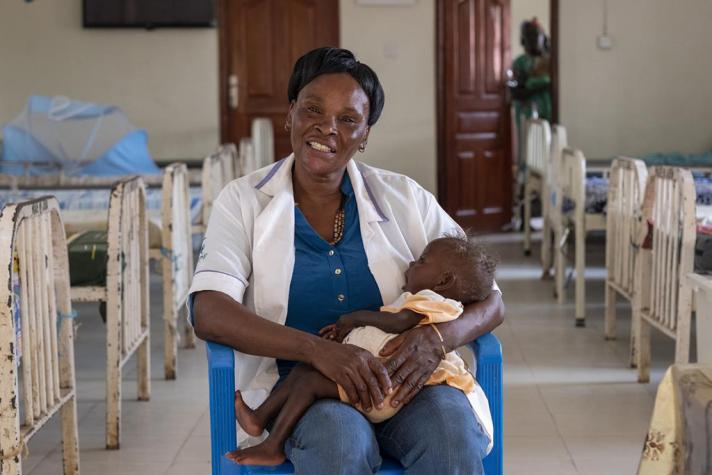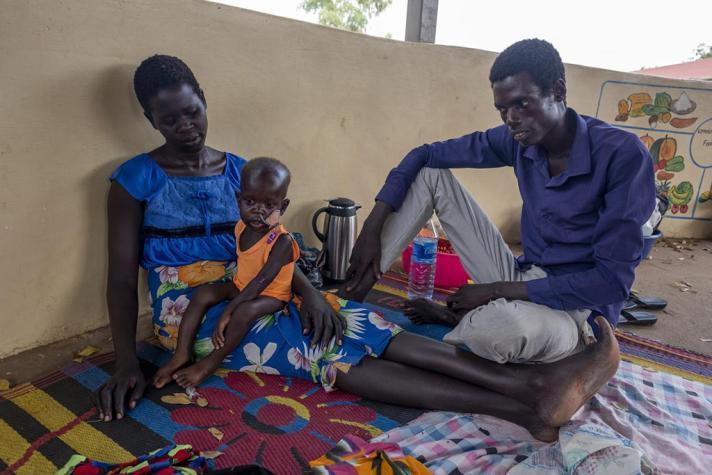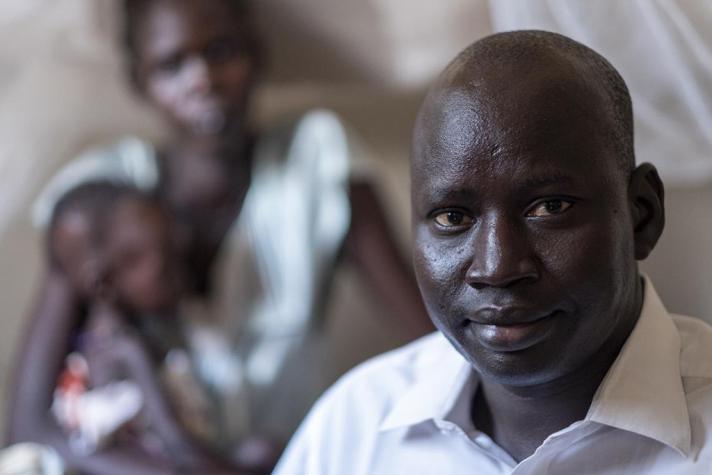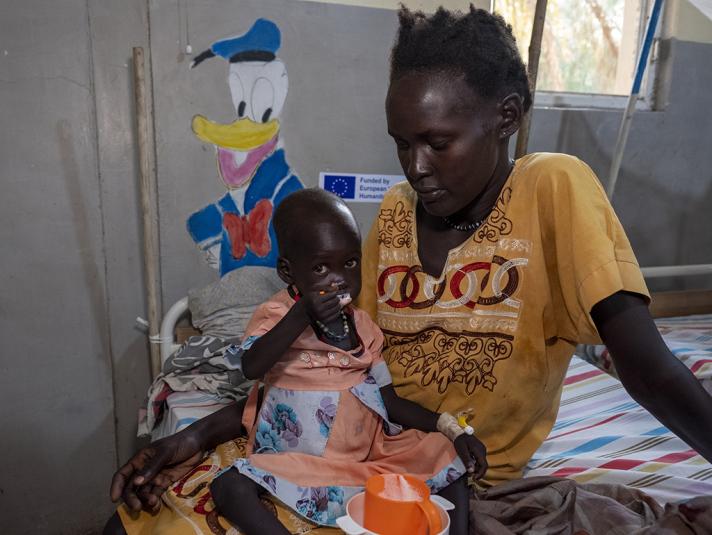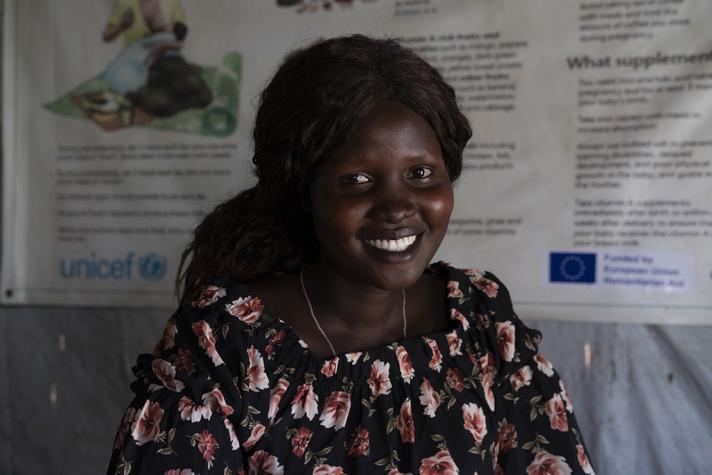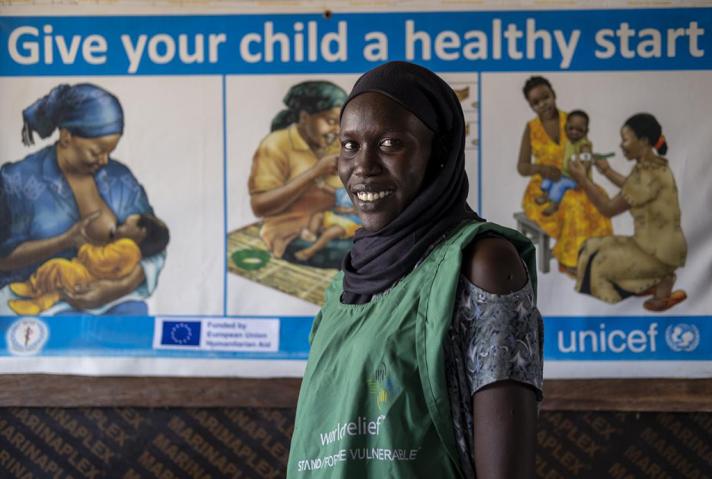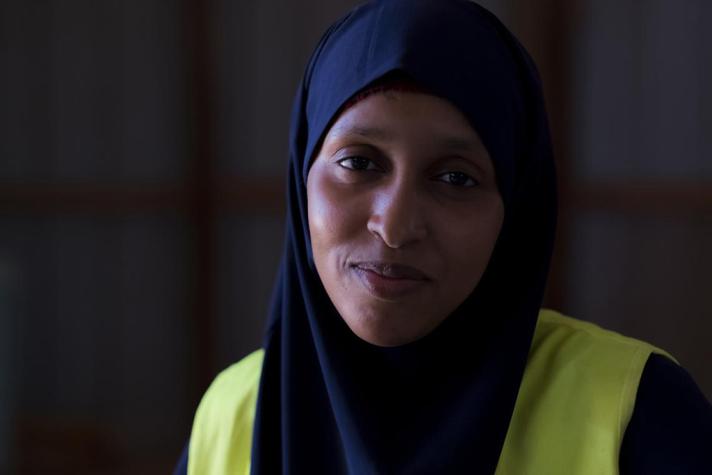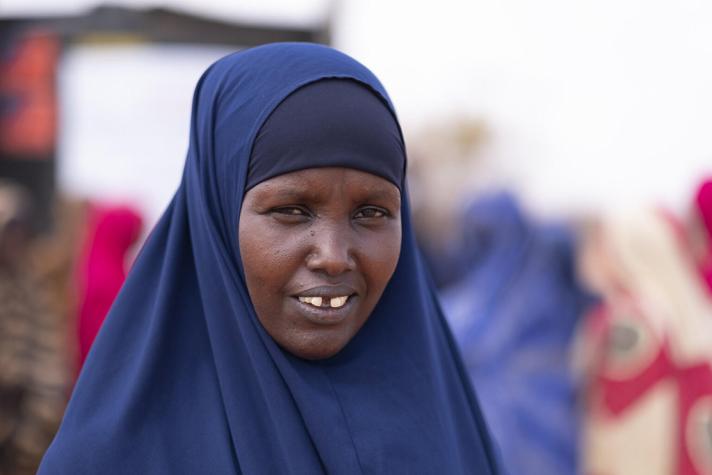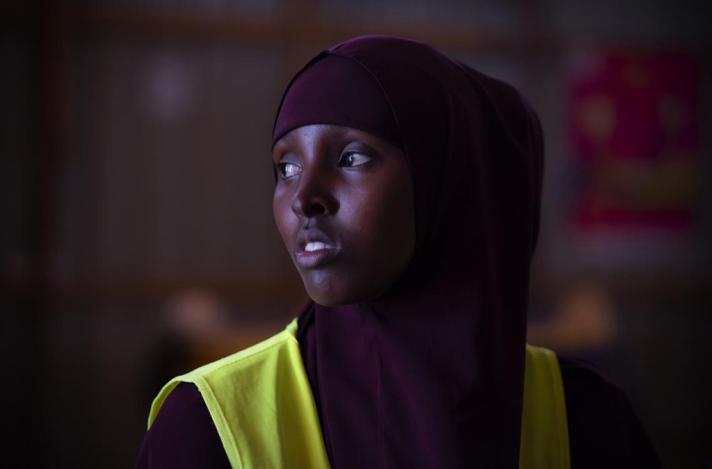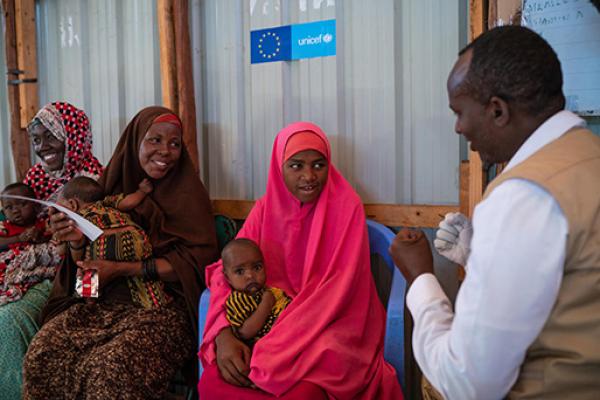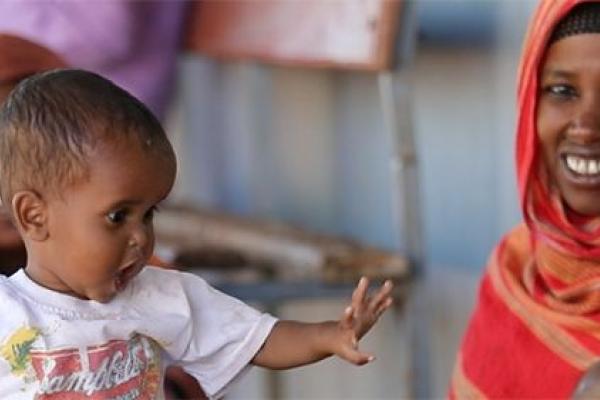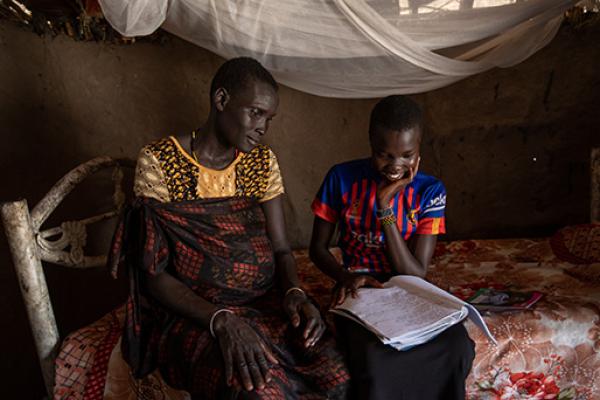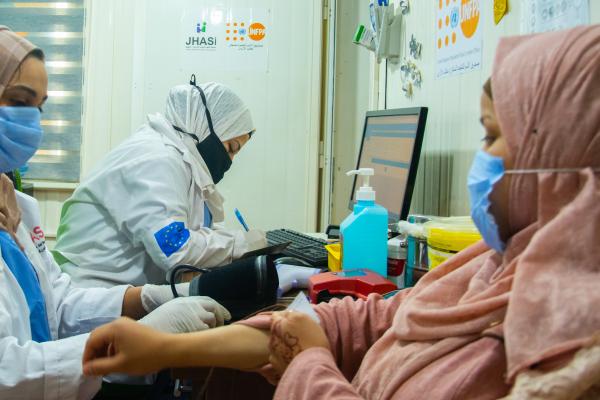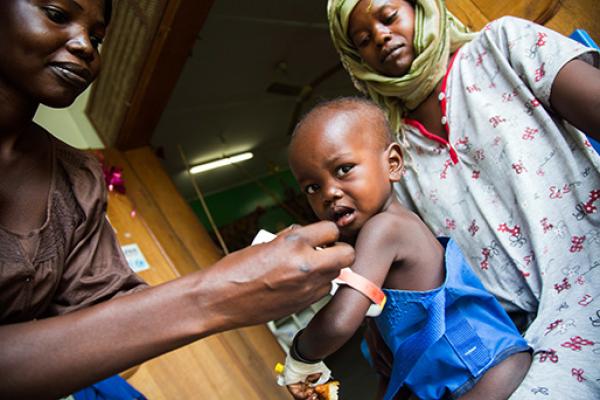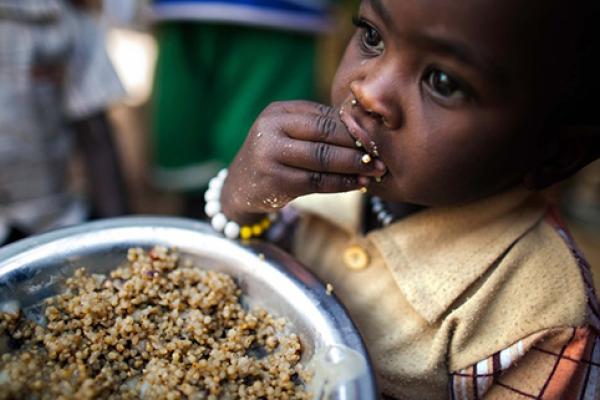Countries in the Horn of Africa, including Ethiopia, Somalia and South Sudan, have been facing a devastating drought – often described as “the worst in a generation”.
With EU humanitarian support, UNICEF is implementing a 3-year programme in Ethiopia, Somalia and South Sudan to prevent malnutrition and provide life-saving aid to those already malnourished.
Over its duration, the initiative wants to reach 3.1 million severely malnourished children in the 3 countries. It also aims to build stronger health and nutrition systems to better withstand future shocks.
In pictures, see how health and community workers, humanitarians and parents are working to save the lives of children on the frontlines of the climate crisis.

